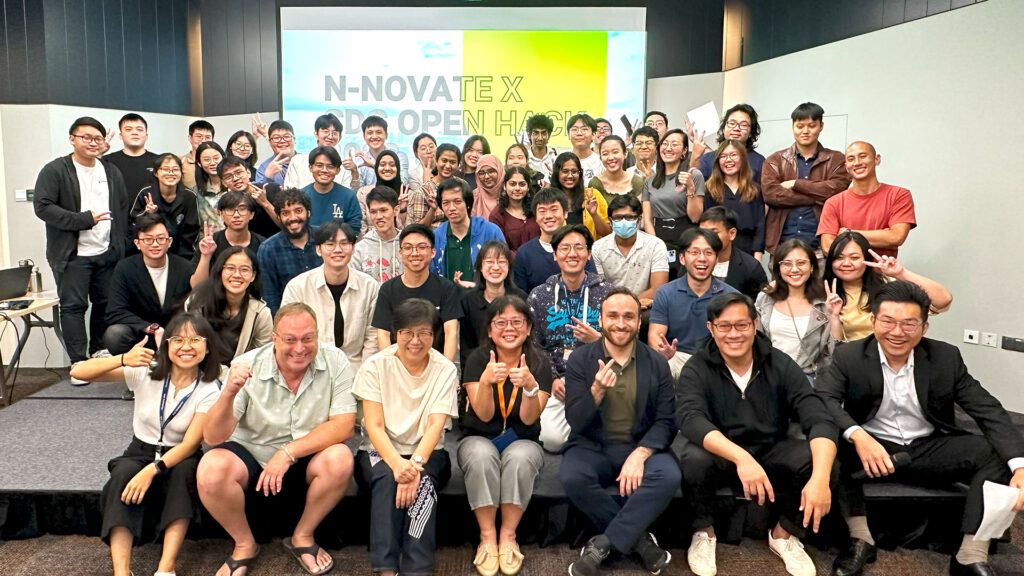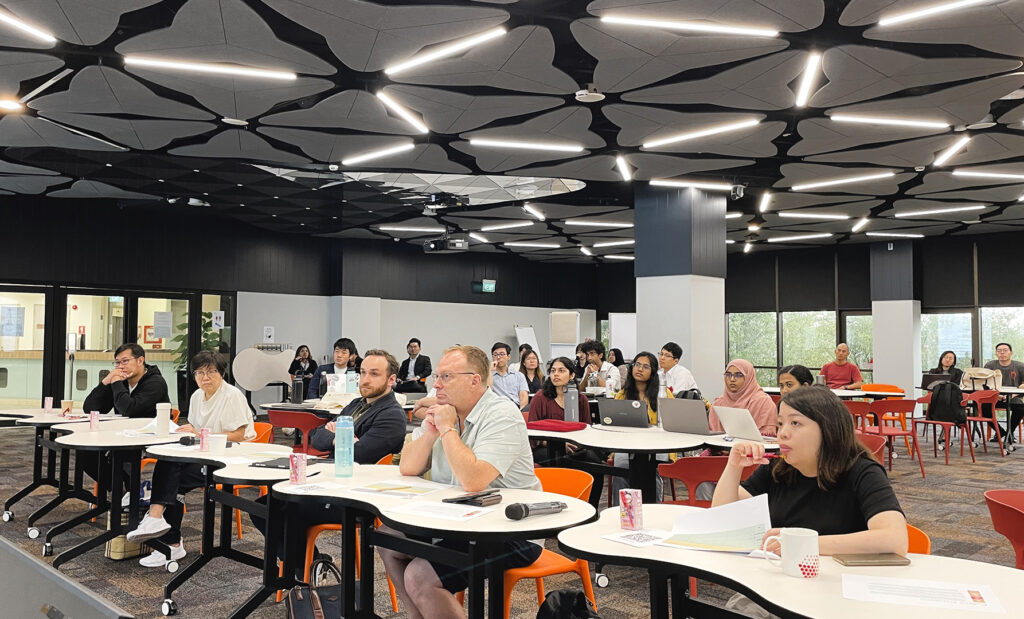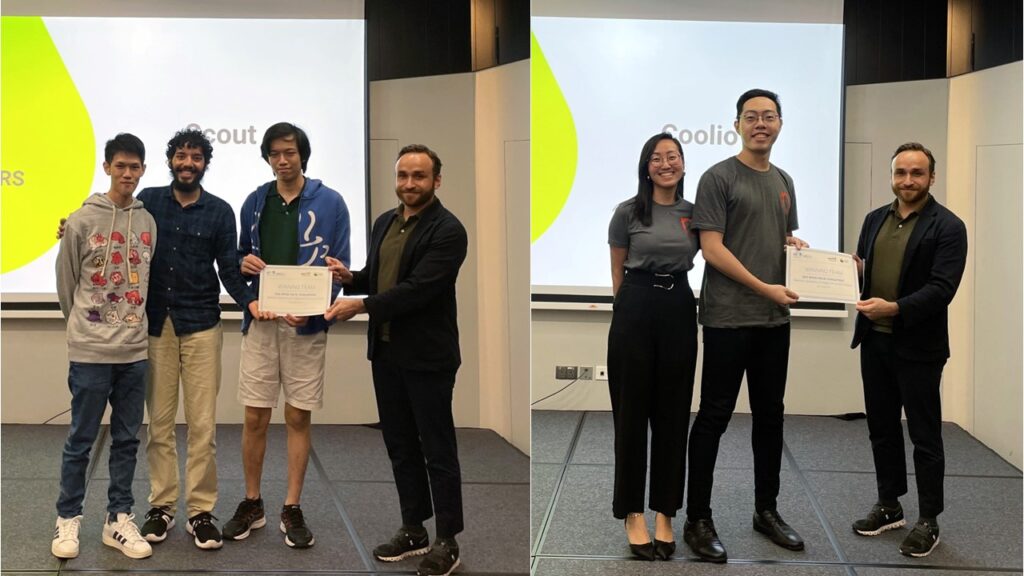Hacking for Sustainable Development: Empowering Innovation to Create a Brighter Future
June 26, 2023

How can innovation be harnessed to promote an inclusive workplace for persons with disabilities or foster more sustainable ecosystems?
This was among the real-world challenges that NUS undergraduates sought to address as part of the N-Novate X SDG Open Hack 2023 hackathon, which saw students developing innovative business ideas to make a positive impact on society and promote sustainability solutions.
The N-Novate Challenge is an annual sustainability hackathon organised by N-House, the entrepreneurship residence of NUS Overseas Colleges (NOC), and NUS Enterprise’s Innovation with Societal Impact. This year, the event was held in collaboration with the NUS Social Impact Catalyst and the Global Green Economic Forum (GGEF), a social enterprise that aims to promote innovation and sustainability.
Taking place on 13 and 14 May, it brought together the N-Novate Challenge and the GGEF’s Sustainable Development Goals (SDG) Open Hack Singapore for the NUS campus edition of the SDG Open Hack. The SDG Open Hack Singapore is part of a global series of student hackathons endorsed by the United Nations. Winners from each campus edition organised by the various institutes of higher learning will compete at the National SDG Open Hack finals to be held in July 2023.
In the lead-up to the hackathon, 50 NUS undergraduate students attended two workshops to prepare themselves for the exciting journey ahead. They included a “Sustainable Living Workshop” conducted by NOC alumnus Kong Qi Herng, co-founder of the Moonbeam co, a start-up affiliated to NUS Enterprise, that produces granola from spent brewers’ grains. At the session, participants gained insights on the importance of considering the entire lifecycle of a product and implementing sustainable practices in entrepreneurship. Another workshop on social entrepreneurship, led by Treatsure, a start-up affiliated to NUS Enterprise, alongside Pawfoo, inspired and challenged participants to develop ideas aimed at addressing existing social and environmental problems.
Participants later formed teams as part of the N-Novate X SDG Open Hack 2023 to address problem statements related to real-world challenges that were developed in line with the UN SDGs. The problem statements this year focused on zero hunger (SGD 2), affordable and clean energy (SDG 7), reduced inequalities (SDG 10), as well as responsible consumption and production (SDG 12).
To help them formulate ideas and enhance their pitches, the teams attended a variety of workshops which ranged from brainstorming, to dissecting problem statements and delivering impactful presentations. Experienced mentors with extensive industry experience from GGEF also provided their generous support, imparting invaluable feedback and guidance to the teams’ ideas and solutions.

D-2 days to the Final Pitch
The two-day event culminated in a final pitch session where each of the 13 teams delivered an impressive three-minute presentation. Four teams emerged as the winners, showcasing the following innovative ideas:
- Team Scout’s solution promoted inclusive workplace hiring through the use of virtual reality technology to provide screening, redesigning and training so that people with disabilities can try out jobs to test their suitability while managers can experience the work environment from the point of view of disabled workers.
- Team Coolio came up with a sustainable ecosystem for researchers and farmers to collaborate and improve research quality, crop yield, food security and resilience.
- Team Ability Architecture sought to make learning more inclusive for youth with disabilities by providing a generative artificial intelligence-powered learning platform, thereby enhancing their ability to learn effectively.
- Team Pin and May’s proposal incorporated inclusivity in sustainable fashion by offering creatively-inclined youths with disabilities a platform to receive training and showcase their reworked thrifted clothes in a sustainable marketplace.
Team Scout and Team Coolio emerged as the top teams, winning a coveted spot in the National SDG Open Hack 2023 finals. The other two teams did not go away empty-handed. Team Ability Architecture and Team Pin and May were accorded the "Most Innovative Digital Solution" Award and “Most Socially Impactful Solution" Award respectively.
Winners who are keen to take their ideas further may also secure further funding through NUS Enterprise’s Venture Initiation Programme (VIP) − Impact Track.

This story by NUS Enterprise first appeared on NUSnews on 23 June 2023.

